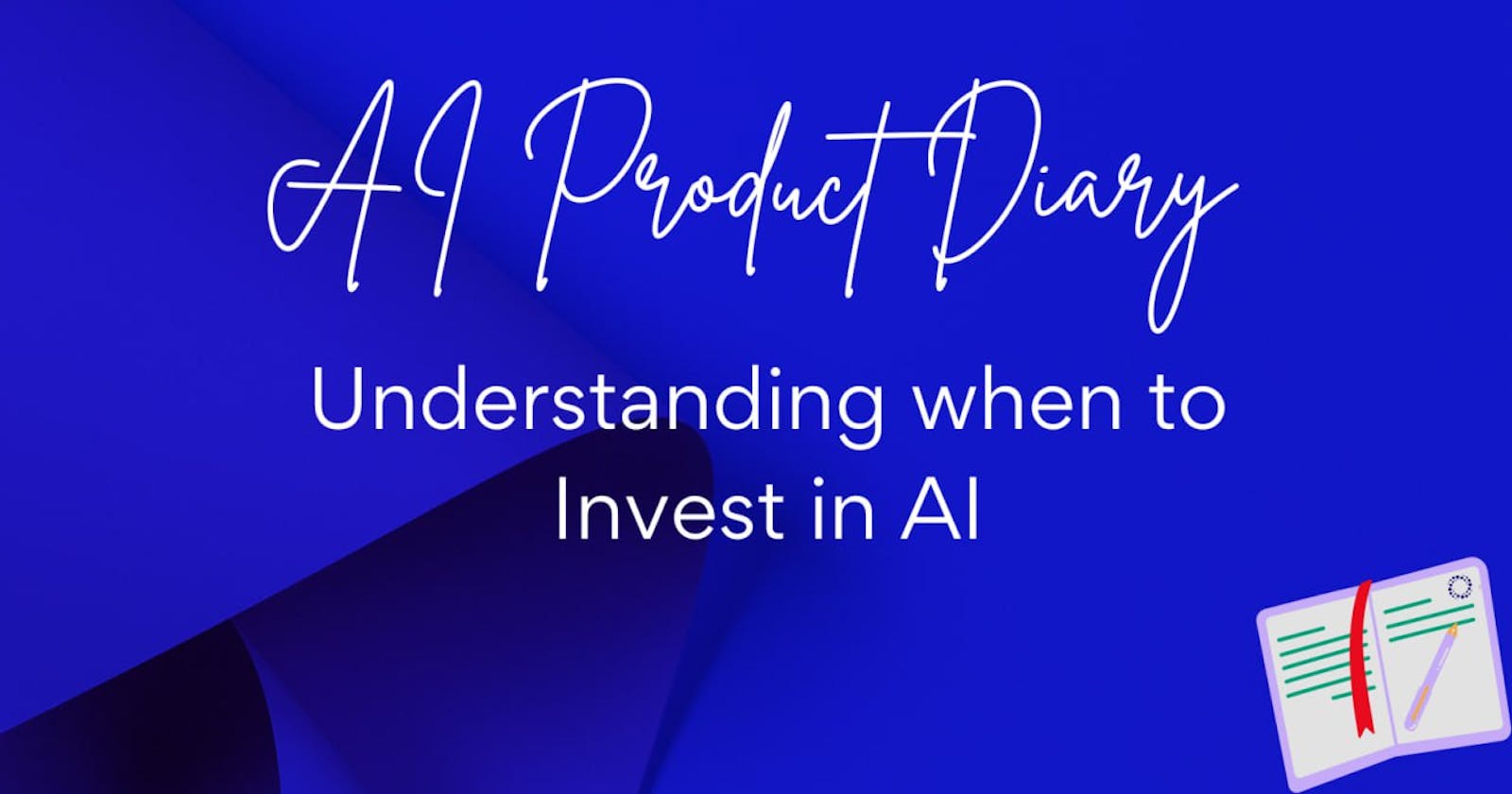Not all problems require AI solutions: Understanding when to invest in AI
Important factors to consider before implementing AI in your products.
The use of artificial intelligence (AI) is on the rise, particularly conversational and generative AI. You may be contemplating whether AI is a necessity for your business or product. However, it’s crucial to understand that not every problem requires an AI solution, and not every AI solution is a good fit for your business.
Here are some factors to consider before implementing AI:
Your company’s needs and objectives
Before investing in AI, you should determine if there is a significant problem that AI can solve or improve upon.
For example, if your business has a high volume of customer inquiries that require human intervention, a conversational AI solution could automate the process and provide customers with quick and accurate responses.
On the other hand, if a small retail store with limited resources chooses to implement an AI-powered inventory management system, this may not be a cost-effective solution. The cost of implementing and maintaining the AI system would outweigh the benefits.
Feasibility of implementing an AI solution
AI systems require significant resources, such as data, data infrastructure, computing power, and specialized expertise.
Before pursuing an AI solution, it’s essential to ensure that your company has the necessary resources to support its development and maintenance.
The potential return on investment (ROI)
While AI solutions can provide significant benefits, such as increased efficiency and accuracy, the cost of implementation and maintenance must be justified by the benefits.
Moreover, when considering implementing AI, it’s important to involve relevant stakeholders from different areas of the business, including IT, marketing, and customer service. Collaboration among teams can ensure that AI solutions align with business objectives, meet user needs, and integrate with existing systems.
Is the task easily automatable?
When a task can be completed by a human expert within seconds, it’s likely that an AI system can perform the same task just as quickly. Examples of easily automatable tasks include simple data entry, sorting and filtering data, and performing routine calculations.
Availability of examples of desired behaviour
AI systems typically rely on large amounts of data to learn and make predictions. If there are few examples of desired behaviour, it may be challenging for the AI system to learn how to perform the task effectively.
Conversely, if there are many examples of desired behaviour, the AI system may be able to learn quickly and perform the task with a high degree of accuracy.
Data privacy and security
When implementing an AI system, it’s crucial to consider data privacy and security.
Companies must ensure that the data used to train the AI system is secure and that any data collected by the AI system is protected. Failure to ensure data privacy and security can result in legal and reputational risks for the company
Effects on user experience
Companies should consider how an AI system will impact the user experience and whether it will improve or detract from it.
On the positive side, AI can improve user experience by providing personalized recommendations, faster response times, and more accurate results.
For example, a music streaming platform may use AI algorithms to recommend songs based on a user’s listening history, creating a more personalized and enjoyable experience for the user.
On the negative side, for example, if an AI-powered chatbot is not well-designed, it may frustrate customers with irrelevant or unhelpful responses, ultimately damaging the customer experience.
Conclusion
In conclusion, while the buzz around AI may be tempting, it’s important to approach the implementation of AI solutions with a strategic and informed approach.
Understanding your company’s unique needs, feasibility, ROI, and involving relevant stakeholders can help you determine if AI is a good fit for your business.
